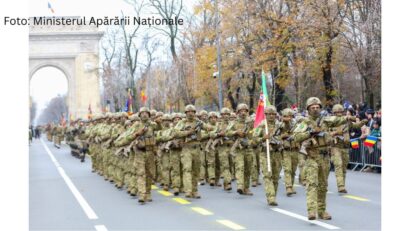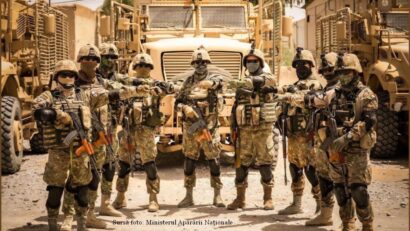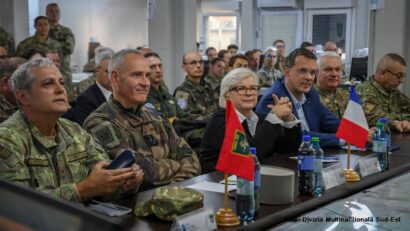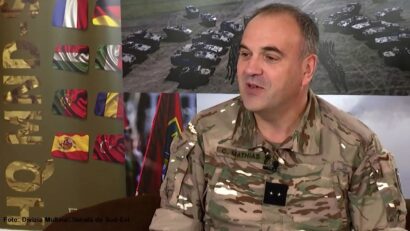Green Scorpions in a multinational training exercise
Evaluation of the Green Scorpions training
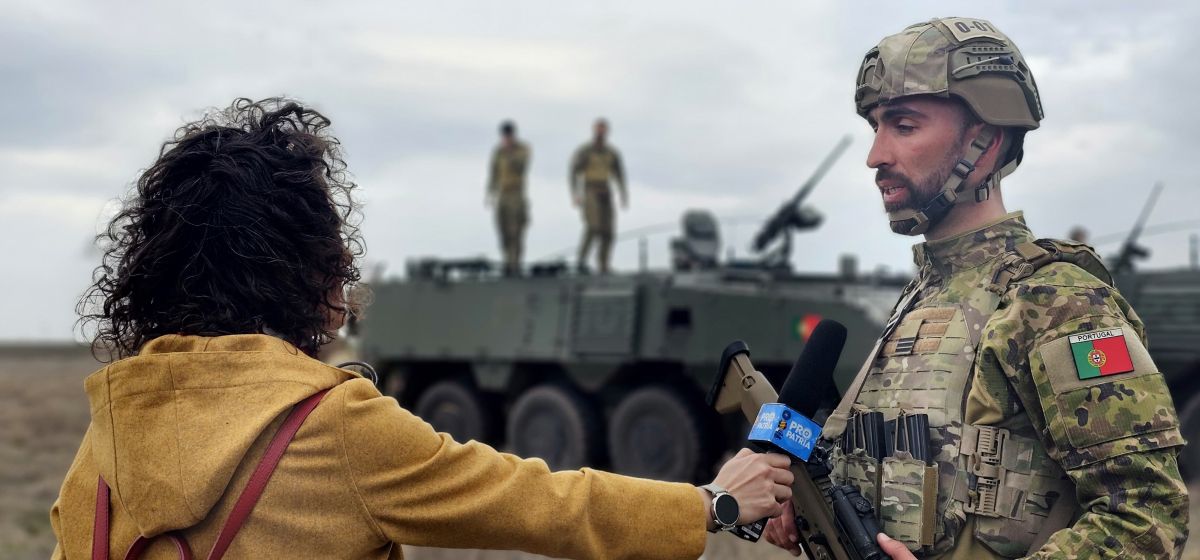
Radio România Internațional, 26.03.2025, 13:58
After days of intense training of the North Macedonian, Portuguese and Romanian soldiers, it was time to evaluate the effort made during the Green Scorpions session. As you can easily deduce, the name comes from the hosts, more precisely the soldiers of the 22nd Infantry Battalion, known as the “Green Scorpions”. If you are wondering why a live-fire exercise is so important, well, you should find out that it represents the totality of all the training. The exercise monitors the level of interoperability, group cohesion and the personnel’s way of action. As in any other activity, the three-stage strategy, planning-execution-evaluation, is respected.
Lieutenant Robert Nica is the one who will present next the context from the Redea training ground (southern Romania): “Today’s action was based on a multinational platoon with three groups of soldiers, a Romanian group, a group made up of Portuguese and one of North Macedonians, various vehicles, we are talking about Piranha III, Humwee and Pandur, and each group was made up of seven soldiers. The live fire is completed when we finish a longer training period, and the live fire helps soldiers a lot to continue focusing on what armament, shooting and coordination between partners mean.”
The first stage of the “Green Scorpions” session began with a briefing with the platoon commanders, in which the tactical situation and the mode of action were presented in order to synchronize the operating procedures. The second phase of the exercise consisted of a field training that included an offensive action, followed by the third phase which will consist in a “hot” action, a live fire exercise, at the platoon level. The engines are revved, the combat vehicles are deployed on the field, and the soldiers disembark and take up their firing positions. Only the commander’s voice is heard through the walkie-talkie, as he gives orders. Each moment has a coded name.
“I was the one who gave the orders, as commander, and they executed the orders received as I planned even before the exercise began. I think the most difficult aspect of this exercise is the coordination of the multinational company, because the first platoon is at an impressive distance and we cannot observe them directly. That is why communication is important in the scenario. I know what is happening in the field only based on what they communicate to me”, explains the Portuguese commander.
The platoons involved in the exercise were composed of mixed groups of soldiers belonging to the three nations. This type of exercise, with live fire, is essential because it tracks deficiencies, attempts are made at improving certain aspects and a comparison is made with previous exercises, in terms of evolution. “We put the acquired notions into practice during this mission here in Romania, during the planning of military operations. We had several exercises here in Romania, and we learned the operational standards from different countries such as Macedonia and Romania. My assistant is a sergeant within the platoon and is responsible for ammunition, equipment and logistics,” the commander of the Portuguese platoon, a 31-year-old man, tells us. This is not his first international mission, in 2023 he was away for six months in the Central African Republic. He admits that every training and exercise brings added value to any team. After all the deployment of forces, at the end of the exercise we wondered what happens if one of the soldiers does not understand the mission received? And the answer came promptly from the captain, the commander of the Portuguese platoon: “This can happen in any mission. If we notice something that does not correspond to the initial planning, we will postpone the exercise for the next time and repeat it again and again, until everything is as we want it to be, and the mission will be a real success.” (Teodora Mazere)

